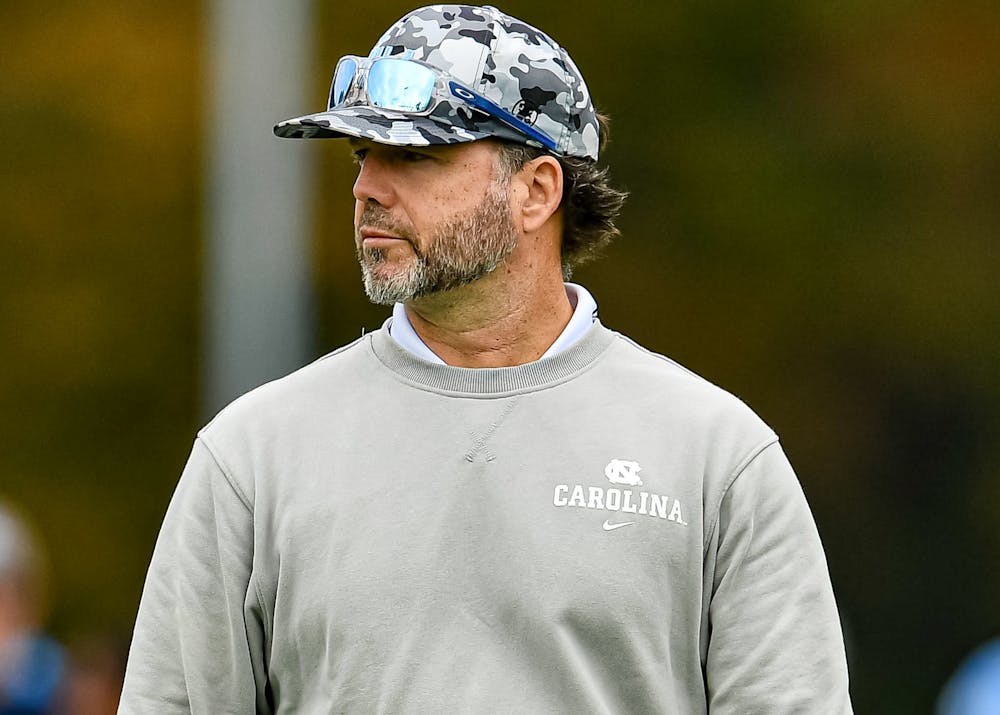Whether it’s on LinkedIn, the field or the sidelines, Peter Murphy has done a little bit of everything for the North Carolina men’s lacrosse team.
The former star defenseman was named as the team's new director of operations on Sept. 25. A 1997 graduate of UNC, Murphy was a captain and three-year starter for the Tar Heels, where he also earned All-America honors. During his tenure as a player, Murphy helped his team claim two ACC titles and currently ranks third all-time in defensive takeaways in the North Carolina record books.
“We're thrilled to see Murph move into the role of director of operations for our Tar Heel lacrosse program,” head coach Joe Breschi said in the hiring announcement. “His passion for the game and this program is unmeasurable, and I'm excited to see the positive impact he continues to have on our young men, on and off the field.”
Murphy’s general roles include supervising fundraising initiatives, organizing events, and preparing on-field strategies and scouting reports. His major responsibility, however, is facilitating the Heels Helping Heels program, which helps players transition to the professional sphere.
‘I don’t think there’s any way that I would go back’
Murphy, a native of Long Island, New York, pursued a career in equity trading in Manhattan and Chicago following his graduation. But, after 20 years in the industry and coaching his kids in their respective sports, he realized he missed being immersed in athletics.
“I had a great career in equities, but my passion is being on the field, working with the kids, and coaching,” Murphy said. “I don’t think there’s any way that I would go back.”
During the COVID-19 pandemic, Murphy moved to Chapel Hill with his family and returned to the program as a volunteer assistant coach in the fall of 2022. On top of his general responsibilities, the role he said he's most excited to assume is being the main liaison in the Heels Helping Heels organization.
Founded during the pandemic, Heels Helping Heels aims to connect lacrosse alumni with current athletes. Matching is based on similarities in geographical location, industries of interest and positions played on the field, among other criteria.




